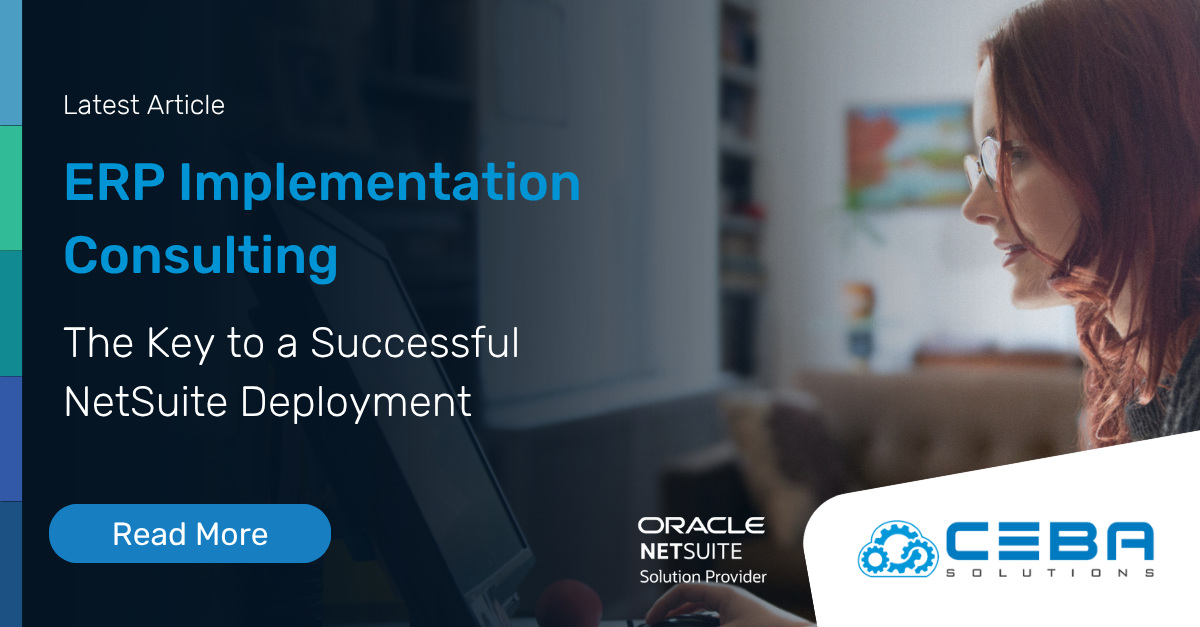
Extended Producer Responsibility: NetSuite's Role in Recycling & Manufacturing Compliance
Extended Producer Responsibility: NetSuite's Role in Recycling & Manufacturing Compliance
Extended producer responsibility (EPR) constitutes a fundamental component of environmental policy and product compliance, with manufacturing and recycling entities increasingly assuming responsibility from the inception to the end-of-life of their products.
This approach integrates sustainability with accountability, as producers take charge of the environmental impact over the lifecycle of their products through producer responsibility organizations. Consequently, consumers benefit from more environmentally conscious options, while also supporting the enhancement of recycling infrastructure to address the issue of plastic pollution. An examination of the industry reveals exemplary cases of EPR implementation, highlighting enterprises that are actively embodying eco-friendly practices.
Extended Producer Responsibility (EPR) represents a significant shift in environmental accountability, compelling companies to manage the entire lifecycle of their products, from inception to end-of-life disposal. This approach not only emphasizes waste reduction and recycling but also places the onus of producer responsibility on manufacturers to ensure their products do not adversely impact the environment throughout their life.
As corporations adapt to these regulatory changes, it is essential to highlight the role that NetSuite plays in facilitating compliance with the many countries governments' and states' Extended Producer Responsibility (EPR) mandates for producers. NetSuite's comprehensive suite of tools assists businesses, including producers in the recycling and manufacturing sectors, by providing robust tracking and reporting capabilities for EPR packaging material and producer responsibility throughout the product life cycle. These features enable producers to monitor their production processes, supply chain management, EPR programs, and waste disposal methods accurately, ensuring producer responsibility.
How NetSuite Supports EPR Obligations
EPR Compliance Management
EPR Regulatory Tracking
NetSuite ERP can effectively track and manage various EPR-related regulations. This system allows companies to update the system with the latest legal requirements and changes in EPR laws. By maintaining a comprehensive database of regulatory information, NetSuite ensures that businesses can quickly adapt to new guidelines or changes. This is crucial for producers to avoid legal penalties, maintain responsibility, and preserve a good reputation in the market.
EPR Compliance Reporting
NetSuite enables detailed reporting on compliance efforts, essential for EPR adherence. Producers can generate reports that showcase their responsibility and compliance with specific regulations. This feature is particularly useful during audits or inspections, as it provides clear evidence of producers' adherence to legal requirements and responsibility. It also helps in identifying areas where compliance might be lacking, allowing for timely corrective measures.
Risk Management
NetSuite's risk management capabilities are vital in identifying and mitigating risks associated with EPR non-compliance. By analyzing data and trends, the ERP can alert companies to potential compliance risks. This proactive approach to risk management ensures that companies can address potential issues before they escalate, thus maintaining their commitment to environmental responsibility.
"Extended Producer Responsibility (EPR) shifts environmental accountability to manufacturers, compelling them to manage their product's lifecycle responsibly. This approach is vital for sustainability, ensuring products are environmentally sound from creation to disposal." - Zabe Siddique, CEO - CEBA Solutions
Product Lifecycle Management
Design for Sustainability
NetSuite's product lifecycle management features enable manufacturers to design products with sustainability and responsibility in mind. This includes selecting materials that are more environmentally friendly and designing products for easier end-of-life recycling. By integrating sustainability into the product design process, manufacturers can reduce environmental impact and align with EPR principles.
Lifecycle Tracking
The ERP system tracks a product's lifecycle from inception to disposal. This allows companies to monitor and manage the environmental impact of their products throughout their lifespan. By having detailed lifecycle data, companies can make informed decisions about improving product sustainability and reducing waste.
End-of-Life Management
NetSuite helps in managing the end-of-life phase of products. This includes strategies for recycling, refurbishing, or disposing of products in an environmentally friendly manner. This feature is critical for EPR, as it ensures that products are disposed of responsibly, minimizing environmental impact.
Supply Chain Management
Sustainable Sourcing
NetSuite aids in sourcing materials that are recyclable or have a lower environmental impact. This includes tracking the origin of materials and ensuring they meet environmental standards. By managing supply chains in this way, companies can reduce their environmental footprint and support sustainable practices.
Supplier Collaboration
NetSuite facilitates collaboration with suppliers on EPR practices. This can include setting environmental standards for suppliers and working with them to meet these standards. Effective supplier collaboration ensures that the entire supply chain contributes to EPR objectives.
Supply Chain Transparency
NetSuite enhances supply chain transparency, allowing companies to track the environmental impact of their supply chains. This transparency is crucial for EPR, as it enables companies to identify areas for improvement and make changes that reduce their overall environmental impact.
Inventory Management
Tracking Recycled Materials
For recycling companies, NetSuite effectively tracks recycled materials throughout their lifecycle. This includes monitoring the collection, processing, and distribution of recycled materials. Accurate tracking ensures efficient management of resources and supports the recycling process.
Product and Material Optimization
NetSuite helps manufacturers manage their product and material inventory to optimize reuse and recycling. This includes identifying opportunities to reduce material use and waste. By optimizing inventory, companies can minimize environmental impact and align with EPR goals.
Waste Reduction
The ERP system provides insights into waste generation and opportunities for reduction. By analyzing inventory data, companies can identify patterns in waste generation and implement strategies to reduce this waste. This is in line with EPR principles, which emphasize waste reduction and environmental sustainability.
Financial Management
Cost Management for Recycling Programs
NetSuite can handle the financial aspects of EPR, such as the costs associated with recycling programs. This includes tracking expenses related to environmental initiatives and ensuring that these are factored into the overall financial planning. Effective cost management is key to maintaining the profitability of EPR programs.
Environmental Taxes and Fees
NetSuite can manage environmental taxes or fees associated with EPR. This ensures that companies are accurately accounting for these costs in their financial planning. Proper management of environmental taxes and fees is essential for both legal compliance and financial stability.
Incentive Tracking
NetSuite tracks financial incentives related to EPR compliance, such as tax breaks or subsidies. By managing these incentives, companies can maximize the financial benefits of adhering to EPR regulations. This feature encourages companies to invest in environmental initiatives by offsetting some of the associated costs.
"NetSuite empowers manufacturers to integrate sustainability at every stage, from eco-friendly design to end-of-life management, aligning with EPR principles and reducing environmental impact." - Zabe Siddique, CEO - CEBA Solutions
Reporting and Analytics
Performance Monitoring
NetSuite enables companies to monitor their EPR-related activities through comprehensive reporting and analytics. This includes tracking the amount of waste managed and recycled materials used. By regularly monitoring performance, companies can ensure they are meeting EPR requirements and identify areas for improvement.
Data-Driven Decision Making
The analytics provided by NetSuite allow for data-driven decision-making. Companies can use data insights to improve their EPR strategies and practices. This includes identifying trends, predicting future challenges, and making informed choices about resource allocation.
Environmental Impact Assessments
NetSuite can generate reports assessing the environmental impact of a company's activities. These assessments are crucial for understanding a company's contribution to environmental sustainability and for reporting this impact to stakeholders, including customers, investors, and regulatory bodies.
Customer and Vendor Portals
Customer Education
Through NetSuite, companies can engage with customers about EPR practices. This includes providing information on how to recycle products and the environmental benefits of doing so. Educating customers is a key aspect of EPR, as it encourages responsible consumer behavior.
Vendor Guidelines
NetSuite allows companies to provide vendors with guidelines for environmentally friendly practices. This ensures that vendors are aligned with the company's EPR objectives and contribute to overall environmental sustainability.
Engagement and Transparency
NetSuite offers platforms for engaging with both customers and vendors on sustainability initiatives. This transparency builds trust and supports collaborative efforts towards environmental responsibility.
Waste Management Costs and Tracking
Collection and Recycling Processes
For recycling companies, NetSuite tracks the entire waste management process, from collection to recycling. This ensures efficiency and compliance with EPR requirements. Accurate tracking also allows for the optimization of these processes, enhancing overall effectiveness.
Integration with Waste Management Systems
NetSuite can integrate with other systems specifically designed to manage waste management costs. This allows for a more comprehensive approach to managing waste and aligns with EPR objectives of reducing environmental impact.
Reporting on Waste Management
The ERP system enables detailed reporting on waste management activities. This includes the volumes of waste collected, processed, and recycled. Such reporting is crucial for transparency and for measuring the effectiveness of waste management strategies.
Integration Capabilities
EPR-Specific Tool Integration
NetSuite can integrate with tools specifically designed for EPR compliance. This allows companies to leverage specialized software alongside NetSuite’s capabilities, creating a more comprehensive and effective EPR strategy.
Seamless Data Flow
The ERP facilitates seamless data flow between different systems. This ensures that all relevant information is available in one place, making it easier to manage EPR-related tasks and maintain compliance.
Customization for EPR Needs
NetSuite’s customization capabilities allow it to be tailored to specific EPR needs. Companies can adapt the ERP system to fit their unique processes and requirements, ensuring effective management of EPR responsibilities.
Sustainability Reporting
Tracking Sustainability Initiatives
NetSuite helps companies track and report on their sustainability initiatives. This is crucial for EPR, as it includes a focus on reducing environmental impact throughout a product's lifecycle. By tracking these initiatives, companies can demonstrate their commitment to sustainability.
Reporting to Stakeholders
The ERP system enables companies to report their sustainability achievements to stakeholders. This includes customers, investors, and regulatory bodies. Effective reporting builds trust and showcases the company’s dedication to environmental responsibility.
Measuring Impact
NetSuite provides tools for measuring the impact of sustainability initiatives. This includes assessing reductions in waste, improvements in recycling rates, and overall environmental impact. Such measurements are essential for understanding the effectiveness of EPR efforts.
Final Remarks
Harnessing NetSuite's robust capabilities, your business can navigate the complexities of extended producer responsibility with finesse. From compliance to product design, supply chain to waste tracking, this ERP system is your co-pilot in the eco-friendly skies. Think less about the red tape and more about green solutions – that's the power at your fingertips.
Ready to elevate your environmental game? It's time to dive into NetSuite and make sustainability more than a buzzword in your operations. Let's turn good intentions into great impacts. Start optimizing, start reporting, start leading the charge towards a greener tomorrow. Are you in?
Frequently Asked Questions
How can NetSuite aid in EPR compliance management?
NetSuite streamlines adherence to Extended Producer Responsibility (EPR) by monitoring and managing regulatory demands, so you're always on track with the law.
Can NetSuite help design more recyclable products?
Absolutely! With its product lifecycle management tools, NetSuite guides manufacturers in creating products that are a breeze to recycle.
Is it possible to manage the environmental impact of my supply chain using NetSuite?
Yes, indeed. NetSuite's supply chain management capabilities enable you to source materials with minimal environmental footprints or those that are easily recyclable.
How does NetSuite handle inventory for recycled materials?
NetSuite shines here by keeping tabs on your recycled goods - where they come from and where they’re headed next.
Can financial aspects of EPR be managed within NetSite?
Certainly! From recycling program costs to environmental taxes, NetSite has got your financial management covered for all things EPR-related.
Does Netsuite provide reporting on waste and recycling efforts?
It sure does. You'll get crisp reports detailing waste handled, use of recycled materials, and insights into your environmental footprint with Netsuite’s reporting features.
What about engaging stakeholders in our EPR practices through Netsuite?
Through customer and vendor portals within Netsuite, engaging stakeholders in your EPR initiatives is as easy as pie.










